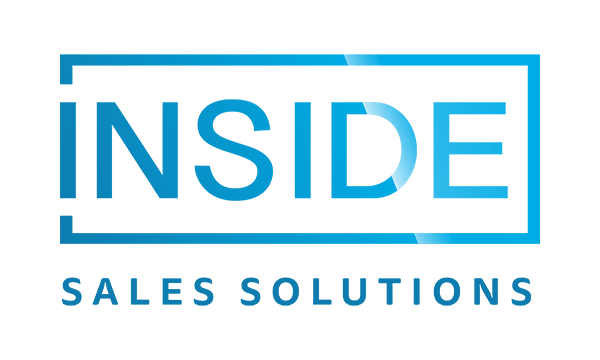This article was originally written in January 2022 and has since been updated with new discoveries and research in October 2025.
Sales development representatives (SDRs) are essential for business success; they fuel your revenue engine by qualifying leads, booking high-quality meetings, and keeping your pipeline strong and healthy. But even SDRs who are naturally talented will hit a wall without intentional, well-structured SDR training.
It’s true: Effective SDR training is critical for building a high-performing sales development team that thrives in the competitive B2B tech space.
Why does SDR training play a major part in modern business outcomes? In B2B tech, the SDR role is designed to be the first line of contact with potential clients.
Instead of leaving things up to chance, a strong SDR training program goes beyond scripts and activity quotas, teaching SDRs how to think like problem-solvers, understand buyer pain points, and use data, personalization, and messaging that resonates.
Ultimately, a successful SDR team can significantly impact lead generation and pipeline health. In this guide, we’ll explore how structured, systematic training can transform struggling SDRs into highly effective reps who drive results quickly and confidently. A clear SDR process ties daily activities to outcomes, guiding reps from research and outreach to qualification, handoff, and follow-up.
Why SDR Training Is Essential for B2B Tech Sales
B2B tech sales are in a lane of their own. Sales cycles are often lengthy and complex, buyers are savvy, and sellers typically need to win over buying groups of between five and 11 stakeholders.
SDRs are the first point of contact for potential customers, making them integral to the sales process. In B2B sales, these early touches shape buying-group perception and determine whether opportunities progress or stall.
In this ecosystem, well-trained SDRs can make a significant difference in securing qualified leads. And when SDRs have clear frameworks, coaching, and the right tools, they create stronger first impressions, qualify faster, and hand off cleaner opportunities, leading to better conversions across the entire funnel.
Here’s where SDR training can move the needle:
- Higher-quality pipeline: Better targeting and deeper discovery lead to meetings that drive urgency and progress to the next stage.
- Revived marketing leads: Consistent, valuable follow-ups can revive prospects who went cold.
- Efficient qualification: Clear criteria and call/email frameworks reduce wasted time.
- Predictable results: Shared playbooks, profound product knowledge, and expertise in key activities like cold calling lead to predictable outcomes.
Effective SDR training can give your team the lift it needs to cure pipeline problems once and for all.
Setting Up New Reps for Success
When developing an SDR training strategy, start with onboarding new reps; it’s your first opportunity to actually train your team. New reps must fully understand the products or services they will be selling to communicate their value clearly to prospects. Day one should also clarify sales development representative roles—what SDRs own, what AEs own, and how handoffs work.
This means giving SDRs onboarding training that covers:
- Buyer context: Ideal customer profile (ICP), personas, and pain points.
- Product immersion: Live demos, customer stories, and competitor snapshots.
- Hands-on practice: Role-plays and call simulations.
Studies show that strong onboarding can improve employee retention by more than 80% and positively impact productivity and engagement.
To take advantage of onboarding as a training opportunity, set clear expectations from the beginning regarding SDR performance. This includes daily, weekly, and monthly KPIs, like the number of calls made, meetings booked, and lead-conversion rates.
Organizing the First Month of SDR Training
Your first 30 days of SDR training set the tone for everything that follows. Here’s a simple week-by-week training framework you can use that moves reps from foundations to on-the-phone confidence.
Week 1: Product Immersion and Tool Familiarization
The first week is focused on onboarding SDRs with product knowledge and introducing them to the tools they will be using. This includes CRM systems, lead management tools, and sales enablement platforms.
Here’s a brief example:
- Goals:
- Understand the problem your product solves, key use cases, core features, and differentiators
- Learn who the ICP and buyer personas are, and how they talk about their challenges
- Get comfortable inside the tech stack: CRM, intent data, and reporting dashboards
If your reps nail these three goals, every touch becomes intentional—rooted in real customer pain, aligned to clear personas, and executed confidently in the tools that track impact. That foundation turns first conversations into qualified meetings and gives managers the data to coach what matters next.
Week 2: Sales Methodologies and Techniques
Week 2 focuses on sales training techniques, including methodologies like SPIN Selling and Challenger Sales. This stage is crucial for teaching SDRs how to engage effectively with prospects and qualify leads based on their needs, budget, and timeline.
Here’s a brief example:
- Goals:
- Practice different methodologies in drills
- Qualify consistently, using standardized criteria that cover areas like need, urgency, and budget
When reps practice with intention and qualify with rigor, they don’t just book more meetings—they advance the right ones. Consistent drills build muscle memory; standardized criteria keep the pipeline clean and predictable.
Week 3: Lead Qualification and Discovery
Introduce SDRs to the key techniques for qualifying leads, such as the BANT and CHAMP frameworks. Role-playing is essential at this stage, allowing new reps to practice qualifying leads in various scenarios, including common objections and how to overcome them.
Here’s a brief example:
- Goals:
- Apply new frameworks in drills
- Deepen B2B prospecting and discovery beyond surface pains, arriving at business impact and urgency
- Improve objection handling with structured responses and confident next steps
By drilling the frameworks, pushing discovery to business impact, and handling objections with structure, reps shift from scripted calls to strategic B2B conversations. The result: Clearer urgency, stronger next steps, and a pipeline of meetings that AEs actually want—moving deals forward faster.
Week 4: Live Application and Continuous Feedback
In Week 4 of sales development representative training, reps move to live applications where they begin calling real prospects. This week should include active feedback sessions to help SDRs refine their approach and adjust their strategies based on real-time performance.
Here’s a brief example:
- Goals:
- Confidently run live calls
- Turn feedback into same-day improvements
By structuring the first month around product immersion, proven methodologies, practical qualification, and live execution with tight feedback loops, you give new SDRs everything they need to ramp with confidence
Training Strategies to Maximize Retention and Engagement
Deploying SDR training isn’t enough: You need to ensure it leads to tangible skill transformation.
With that in mind, here are training strategies you can use to boost rep retention and engagement:
- Modular, bite-sized learning: Break training into easily digestible modules that focus on specific skills such as cold calling, email outreach, and lead qualification. Organize each module with a clear objective, short lessons, and a quick practice exercise, so reps can apply what they learn immediately.
- Interactive, high-energy practice: Incorporate interactive learning experiences, such as live role-playing and gamification, to keep SDRs engaged throughout their training and make practice memorable.
- Continuous, targeted feedback: Provide continuous feedback (even when training is over) to help reps become aware of their progress. Regular check-ins and skill review sessions help identify areas for improvement and offer further training opportunities.
The result of highly effective SDR training? Faster ramp, higher-quality meetings, and a repeatable playbook your team can scale
Creating a Supportive Environment for SDRs
A strong training plan only works if the environment supports it. To help your SDRs thrive, pair new SDRs with experienced team members who can provide guidance and mentorship.
Set up a simple buddy program with clear goals: Regular Slack check-ins, weekly shadowing sessions, and one scheduled role-play with feedback. Give mentors a lightweight checklist (tools, talk tracks, and objection practice) so their help is consistent and guided.
Next, conduct regular team meetings and knowledge-sharing sessions to help SDRs learn from each other and stay motivated. You can review call clips, give refreshers on core skills, and hold an open Q&A to drive conversations.
Lastly, implement an incentive system to recognize and reward SDRs for meeting targets, and you’ll keep momentum and spirits high. Tie rewards to both outcomes and behaviors: Meetings booked/held, plus quality signals like positive customer feedback.
Measuring and Improving SDR Performance
SDR training should lead to measurable wins and performance boosts. By tracking SDR performance, you turn day-to-day activity into coachable moments.
To start, track the key performance indicators (KPIs) that matter most for SDRs, such as the number of leads generated, meetings booked, and conversion rates. Layer in leading indicators (such as connect rate, reply rate, talk time, and time-to-first meeting) to spot issues early. Use CRM tools and dashboards to monitor SDR progress and ensure alignment with sales goals.
Also, gather regular feedback from SDRs and the sales team. Numbers alone only tell you what happened; feedback explains why. You can run weekly check-ins with SDRs to capture patterns: Which openers land, where discovery stalls, and why meetings are accepted or declined. Use this input to iterate and improve the training program, adjusting strategies and techniques based on real-world results and feedback from the team.
Drive Sales Success With Proven SDR Training
Winning in outbound lead generation starts with a confident, well-trained SDR team. When these reps are highly trained, they can unlock a higher-quality pipeline, revive cold market leads, qualify more efficiently, and achieve predictable results. A simple four-week SDR training program can cover all of the foundations your reps should have, from product knowledge to complex objection handling.
Are you ready to level up your SDR efforts?
Contact Inside Sales Solutions to learn more about how we can help optimize your SDR training programs. Whether you’re looking to build a high-performing team from scratch or refine your existing process, we have the tools and expertise to help drive results.

